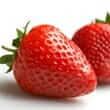Background
- Quercetin is a major flavonol, one of the almost 4,000 flavonoids (antioxidants) that occur in foods of plant origin, such as red wine, onions, green tea, apples, berries, and Brassica vegetables (cabbage, broccoli, cauliflower, turnips). Quercetin is also found in Gingko biloba, St. John's wort, and American elder.
- Quercetin and rutin (another flavonol) are used in many countries as vasoprotectants (protects blood vessels) and are ingredients of numerous multivitamin preparations and herbal remedies. They occur mainly as glycosides, which means they are linked with various sugars. However, the ability of the body to absorb these compounds is questionable.
- Quercetin and other flavonols have a wide variety of biological effects, but the scientific evidence for use in the prevention or treatment of disease is weak. Quercetin has been considered as a therapy for cardiovascular diseases, high cholesterol, diabetic cataracts, inflammation, ischemic injury, chronic prostatitis, chronic venous insufficiency, gastrointestinal ulceration, hepatitis, allergies, asthma, viral infections, and hay fever.
- Review of the literature shows that there have been several studies on the association of quercetin and with the risk reduction for coronary heart disease and stroke, high blood pressure, cancers, and a few studies on other medical conditions. However, there is a lack of strong evidence to support any of these conditions.
References
- Hibatallah J, Carduner C, Poelman MC. In-vivo and in-vitro assessment of the free-radical-scavenger activity of Ginkgo flavone glycosides at high concentration. J Pharm Pharmacol 1999;51(12):1435-1440.
View Abstract - Hubbard GP, Wolffram S, Lovegrove JA, et al. Ingestion of quercetin inhibits platelet aggregation and essential components of the collagen-stimulated platelet activation pathway in humans. J Thromb Haemost 2004;2(12):2138-2145.
View Abstract - Janssen K, Mensink RP, Cox FJ, et al. Effects of the flavonoids quercetin and apigenin on hemostasis in healthy volunteers: results from an in vitro and a dietary supplement study. Am J Clin Nutr 1998;67(2):255-262.
View Abstract - Kiesewetter H, Koscielny J, Kalus U, et al. Efficacy of orally administered extract of red vine leaf AS 195 (folia vitis viniferae) in chronic venous insufficiency (stages I-II). A randomized, double-blind, placebo-controlled trial. Arzineimittelforschung 2000;50(2):109-117.
- Knekt P, Isotupa S, Rissanen H, et al. Quercetin intake and the incidence of cerebrovascular disease. Eur J Clin Nutr 2000;54(5):415-417.
View Abstract - Lekakis J, Rallidis LS, Andreadou I, et al. Polyphenolic compounds from red grapes acutely improve endothelial function in patients with coronary heart disease. Eur J Cardiovasc Prev Rehabil 2005 Dec;12(6):596-600.
View Abstract - Mulholland PJ, Ferry DR, Anderson D, et al. Pre-clinical and clinical study of QC12, a water-soluble, pro-drug of quercetin. Ann Oncol 2001;12(2):245-248.
View Abstract - Nieman DC, Henson DA, Davis JM, et al. Quercetin's influence on exercise-induced changes in plasma cytokines and muscle and leukocyte cytokine mRNA. J Appl Physiol 2007 Nov;103(5):1728-35.
View Abstract - Nieman DC, Henson DA, Gross SJ, et al. Quercetin reduces illness but not immune perturbations after intensive exercise. Med Sci Sports Exerc 2007 Sep;39(9):1561-9.
View Abstract - Nothlings U, Murphy SP, Wilkens LR, et al. Flavonols and pancreatic cancer risk: the multiethnic cohort study. Am J Epidemiol 2007 Oct 15;166(8):924-31.
View Abstract - Pal D, Mitra AK. MDR- and CYP3A4-mediated drug-herbal interactions. Life Sci 2006 Mar 27;78(18):2131-45.
View Abstract - Schulz HU, Schurer M, Bassler D, et al. Investigation of pharmacokinetic data of hypericin, pseudohypericin, hyperforin and the flavonoids quercetin and isorhamnetin revealed from single and multiple oral dose studies with a hypericum extract containing tablet in healthy male volunteers. Arzneimittelforschung 2005;55(10):561-8.
View Abstract - Schaefer E, Peil H, Ambrosetti L, et al. Oedema protective properties of the red vine leaf extract AS 195 (Folia vitis viniferae) in the treatment of chronic venous insufficiency. A 6-weel observational trial. Arzineimittelforschung 2003;53(4):243-246.
- Shoskes DA, Zeitlin SI, Shahed A, et al. Quercetin in men with category III chronic prostatitis: a preliminary prospective, double-blind, placebo-controlled trial. Urology 1999;54(6):960-963.
View Abstract - Theoharides TC, Sant GR. A pilot open label study of Cystoprotek in interstitial cystitis. Int J Immunopathol Pharmacol 2005;18(1):183-188.
View Abstract







